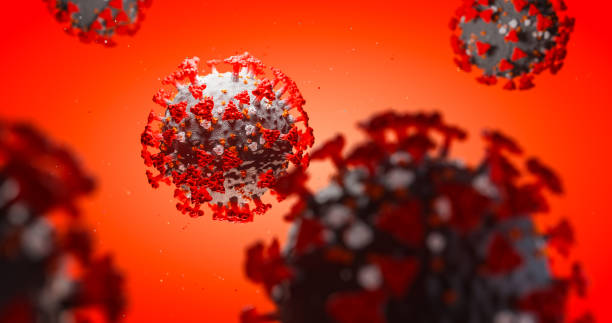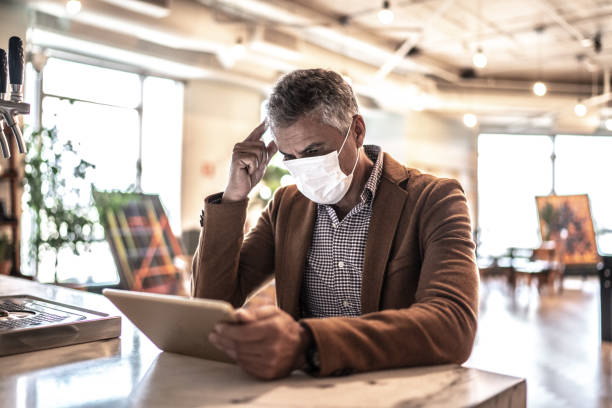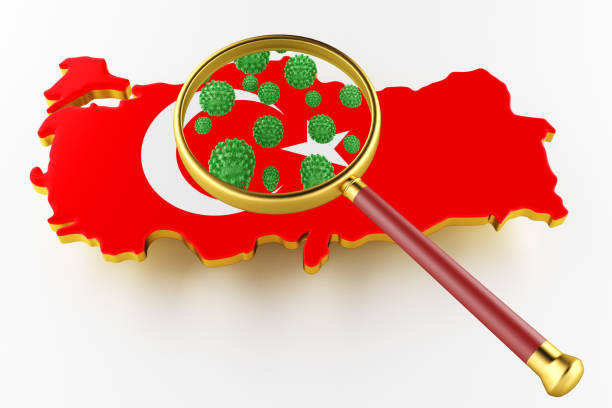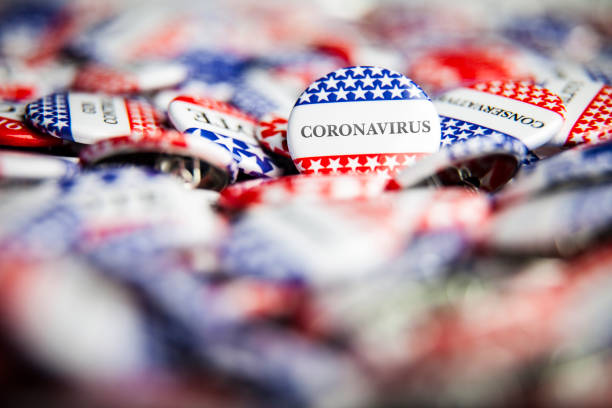Title: The Intriguing Connection: Coronavirus in Animals
In late 2019, the world was jolted by the emergence of a novel virus that quickly spread to become a global pandemic. The virus, known as SARS-CoV-2, is responsible for the disease called COVID-19. While the virus primarily affects humans, its origins have been traced back to animals. This connection between the coronavirus and animals has sparked intense scientific research and discussion, shedding light on the intricate relationship between humans and the animal kingdom.
Origins and Zoonotic Transmission:
Coronaviruses are not new to the scientific community. They have been known to cause respiratory and gastrointestinal infections in various animals for decades. These viruses have the ability to mutate and jump between species, which can lead to the emergence of new strains with varying degrees of transmissibility and pathogenicity. The exact origins of SARS-CoV-2 have been a subject of extensive investigation, but it is widely believed to have originated in bats and then possibly transmitted to humans through an intermediate host.
The Role of Wildlife:
Bats have been implicated as natural reservoirs of coronaviruses due to their unique immune systems that allow them to harbor such viruses without getting sick themselves. However, the transmission to humans often involves an intermediary animal host. In the case of SARS-CoV-2, pangolins have been suggested as a potential intermediate host due to the similarities between the virus found in pangolins and the one infecting humans. This zoonotic spillover highlights the need for a better understanding of human-wildlife interactions and the impact of habitat destruction and wildlife trade on disease emergence.
Domesticated Animals and COVID-19:
Beyond wildlife, domesticated animals have also been affected by the virus. Reports of SARS-CoV-2 infections in pets, such as cats and dogs, raised concerns about human-to-animal transmission. While instances of transmission from humans to pets have been documented, there is limited evidence of pets spreading the virus back to humans. Nevertheless, these cases underscore the importance of practicing good hygiene and responsible pet ownership during the pandemic.
The One Health Approach:
The coronavirus pandemic has highlighted the interconnectedness of human, animal, and environmental health. The One Health approach recognizes that the health of humans is closely linked to the health of animals and the environment. This holistic perspective emphasizes the need for collaboration between human health professionals, veterinarians, ecologists, and other experts to monitor and address emerging diseases that can affect multiple species. By understanding and managing these complex interactions, we can better prevent and mitigate future pandemics.
Lessons Learned and Future Preparedness:
The emergence of SARS-CoV-2 has exposed vulnerabilities in our global health systems and the need for better preparedness. Learning from this experience, scientists and policymakers are working to enhance surveillance systems that monitor potential outbreaks in animals. This proactive approach can help identify and intervene in situations where a virus is spilling over from animals to humans. Additionally, there is a push for stronger regulation of wildlife trade and habitat preservation to reduce the risk of future zoonotic events.
Vaccination Efforts in Animals:
As the world races to vaccinate humans against COVID-19, there have been discussions about vaccinating animals as well. While some experimental vaccines have been developed for animals, the decision to vaccinate domesticated animals or wildlife is complex. Factors such as the risk of transmission, the potential for vaccine-induced side effects, and the availability of resources play a role in determining the most appropriate course of action. Vaccinating animals could potentially help curb the spread of the virus and reduce the likelihood of it spilling back into humans.
Beyond COVID-19:
The coronavirus pandemic serves as a stark reminder that our relationship with animals and the environment has profound implications for our health. This connection extends beyond SARS-CoV-2 to other infectious diseases as well. Diseases like Ebola, Zika, and Avian Influenza have all been linked to animal reservoirs. Understanding these connections and investing in interdisciplinary research will be crucial in preventing and mitigating future pandemics.
Conclusion:
The coronavirus pandemic has underscored the importance of recognizing the intricate relationship between humans, animals, and the environment. By studying the origins and transmission of SARS-CoV-2, scientists are gaining valuable insights into how infectious diseases emerge and spread. The lessons learned from this pandemic should drive global efforts to strengthen surveillance, promote conservation, and adopt a One Health approach to ensure the health and well-being of all species on our planet. As we navigate the challenges of the present and future, collaboration and a deeper understanding of the coronavirus-animal connection will be essential in safeguarding our shared future.
In late 2019, the world was jolted by the emergence of a novel virus that quickly spread to become a global pandemic. The virus, known as SARS-CoV-2, is responsible for the disease called COVID-19. While the virus primarily affects humans, its origins have been traced back to animals. This connection between the coronavirus and animals has sparked intense scientific research and discussion, shedding light on the intricate relationship between humans and the animal kingdom.
Origins and Zoonotic Transmission:
Coronaviruses are not new to the scientific community. They have been known to cause respiratory and gastrointestinal infections in various animals for decades. These viruses have the ability to mutate and jump between species, which can lead to the emergence of new strains with varying degrees of transmissibility and pathogenicity. The exact origins of SARS-CoV-2 have been a subject of extensive investigation, but it is widely believed to have originated in bats and then possibly transmitted to humans through an intermediate host.
The Role of Wildlife:
Bats have been implicated as natural reservoirs of coronaviruses due to their unique immune systems that allow them to harbor such viruses without getting sick themselves. However, the transmission to humans often involves an intermediary animal host. In the case of SARS-CoV-2, pangolins have been suggested as a potential intermediate host due to the similarities between the virus found in pangolins and the one infecting humans. This zoonotic spillover highlights the need for a better understanding of human-wildlife interactions and the impact of habitat destruction and wildlife trade on disease emergence.
Domesticated Animals and COVID-19:
Beyond wildlife, domesticated animals have also been affected by the virus. Reports of SARS-CoV-2 infections in pets, such as cats and dogs, raised concerns about human-to-animal transmission. While instances of transmission from humans to pets have been documented, there is limited evidence of pets spreading the virus back to humans. Nevertheless, these cases underscore the importance of practicing good hygiene and responsible pet ownership during the pandemic.
The One Health Approach:
The coronavirus pandemic has highlighted the interconnectedness of human, animal, and environmental health. The One Health approach recognizes that the health of humans is closely linked to the health of animals and the environment. This holistic perspective emphasizes the need for collaboration between human health professionals, veterinarians, ecologists, and other experts to monitor and address emerging diseases that can affect multiple species. By understanding and managing these complex interactions, we can better prevent and mitigate future pandemics.
Lessons Learned and Future Preparedness:
The emergence of SARS-CoV-2 has exposed vulnerabilities in our global health systems and the need for better preparedness. Learning from this experience, scientists and policymakers are working to enhance surveillance systems that monitor potential outbreaks in animals. This proactive approach can help identify and intervene in situations where a virus is spilling over from animals to humans. Additionally, there is a push for stronger regulation of wildlife trade and habitat preservation to reduce the risk of future zoonotic events.
Vaccination Efforts in Animals:
As the world races to vaccinate humans against COVID-19, there have been discussions about vaccinating animals as well. While some experimental vaccines have been developed for animals, the decision to vaccinate domesticated animals or wildlife is complex. Factors such as the risk of transmission, the potential for vaccine-induced side effects, and the availability of resources play a role in determining the most appropriate course of action. Vaccinating animals could potentially help curb the spread of the virus and reduce the likelihood of it spilling back into humans.
Beyond COVID-19:
The coronavirus pandemic serves as a stark reminder that our relationship with animals and the environment has profound implications for our health. This connection extends beyond SARS-CoV-2 to other infectious diseases as well. Diseases like Ebola, Zika, and Avian Influenza have all been linked to animal reservoirs. Understanding these connections and investing in interdisciplinary research will be crucial in preventing and mitigating future pandemics.
Conclusion:
The coronavirus pandemic has underscored the importance of recognizing the intricate relationship between humans, animals, and the environment. By studying the origins and transmission of SARS-CoV-2, scientists are gaining valuable insights into how infectious diseases emerge and spread. The lessons learned from this pandemic should drive global efforts to strengthen surveillance, promote conservation, and adopt a One Health approach to ensure the health and well-being of all species on our planet. As we navigate the challenges of the present and future, collaboration and a deeper understanding of the coronavirus-animal connection will be essential in safeguarding our shared future.




